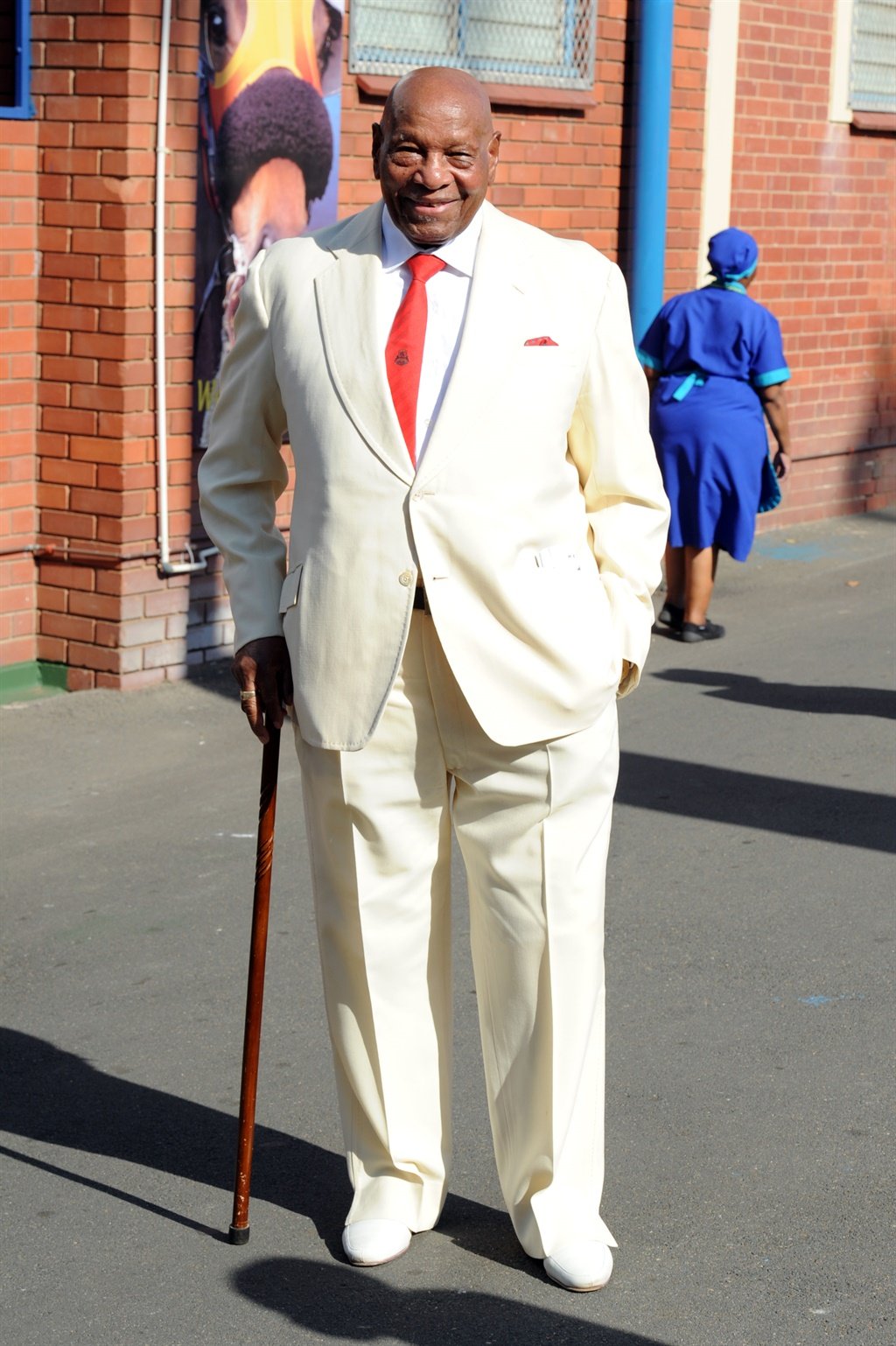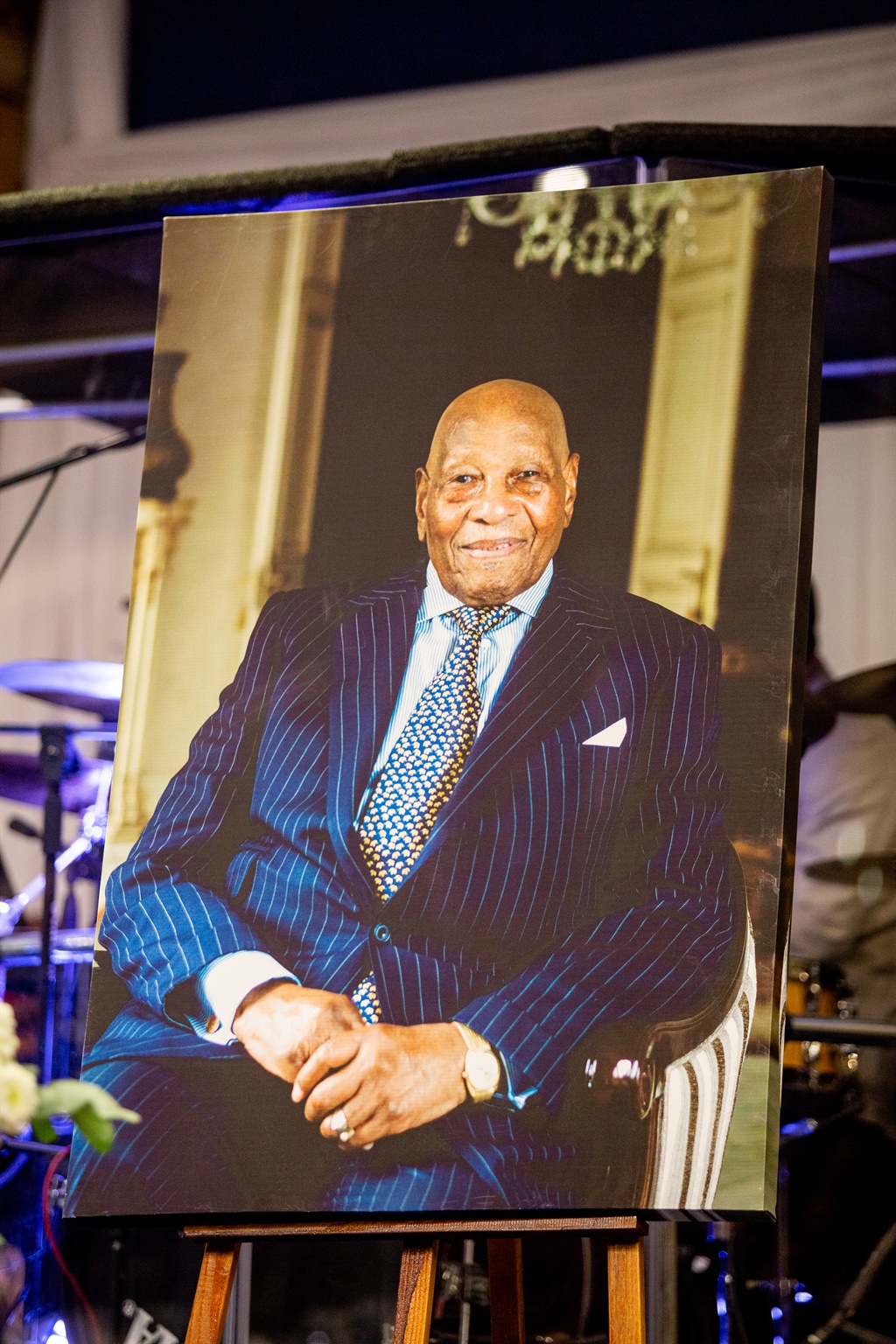
I always imagined Richard Maponya standing at the edge of his dreams, at the end of the horizon, looking at his children.
I cannot reach the other side. I cannot bend the horizon, limits of my times. But you, all of you, will travel much further. I cannot even fathom the heights that you will reach.
I imagined his children looking at him with much wonder.
Dad, you have done exceptionally well, we are well fed and well clothed, we have successful businesses, we have a home, a name, and we don’t want for anything. The South Africa we live in today, he might have responded, the work that me and a few have managed to do, could never possibly justify our abilities, our dreams.
One day, black people will be at the world’s stage, unconfined by the oppression of other men.
Yet, I imagine his own parents, his relatives, siblings, telling him how it can’t be done. I imagine his community, pressed down by the apartheid police state, reminding him of the restrictions placed on black people, the folding of dreams, beseeching him to wait, one day freedom will come, one day.
No I won’t wait, I will not wait, the impatience coming from the depths of his heart, I will take my shot at success, I will not wait.
Even this resolve would have its own moments of doubt sometimes. Like other relatively successful black South Africans at the time, like Hugh Masekela, who would approach Oliver Tambo to expressed his regret that he was in a profession that seemed not to contribute significantly to the liberation of our people, and OR Tambo rebuking him: your work is very vital to the struggle.
I imagine Richard, in his regular visit to Madiba in prison, with each year both getting older and frailer: Was the work I am doing a betrayal to my people, had I chosen an easier road, was I sacrificing enough, like Mandela, Sisulu, Kathrada.
Mandela, like Tambo would have dismissed those thoughts from his head out of hand: Stop, the work you are doing, what you stand for, black success, black business, self-reliance, is what is at the core of the struggle. Press on.
What has always been clear is that Richard Maponya took a personal resolve early in his life to test the economic limits imposed on a black man, to charge the walls, dare to lift his sights to a much bigger and brighter life. He wanted to see how he measured up to all the odds.
He measured quite well.
He would go on to live a life that would be a testament of all successive black leaders who had sort to convince the world that black people’s humanity, resilience, industriousness, talent, can go toe to toe with any grouping so defined, and locking us outside was doing the world a great disservice.
Richard lived his life as a successful businessman and this may occasionally seem, even to himself, an ordinary act of self-interest, as all businesses would otherwise be, indirectly helping his community as he serves his own interest.
But his was more than that.
Richard was refusing to accept a life chosen by someone else for him, refusing to live in the manner prescribed for him. He rejected going to waste and waiting the clock out, he wanted his life to matter and the fruits of his labour to be given to him now, not in the next life, not in some unknown future. His life would matter and it would matter in the years of his youth.
It is also significantly important that he was not going to try his success anywhere else but in his community. He was not going to listen when they told him the environment was not conducive, that it’s not business friendly, that people are too poor, they will buy on credit and never honour their dues, that his family will bringing him down.
He was bound to break all those stereotypes here, in Soweto, a place where he can inspire many others to also dare the odds and aspire to be great.
At the age of 24 he had already secured a profession. He was a teacher, a significant achievement at the time and could have lived with the pride each community took in its teachers and the modest life of a government salary, but Richard had a different life in mind.
When Richard took a job as a stock taker at a store, teacher as he was, he must have seem like a heretic from those close to him, who must have ached at his decision to abandon the respectability of a profession into a world of the unknown, a world usually reserved for those who have not found their own way life.
Taking that job as a stock taker at a clothing store would be a turning point in his life, but he couldn’t have expected the hills he would have to climb in order to finally establish himself as an independent businessman able to provide jobs to other black people.
The apartheid government was happy for him to work as a stock taker at a white owned store – lowly work that befitted his humiliated people.
They did not even mind his quick promotion at the store, but when he wanted to open his first store, who did he think he was.
His licence to trade was denied.
Richard had not only helped himself get a promotion from his clothing store employer but he had also helped his then white boss get a promotion. It is clear that his brilliance was a threat to other white clothing stores and this may well be at the core why black people were excluded from the franchise, while being bombarded with indoctrination that they are not good enough and will never be as good as white people.
Richard beat all the odds that would follow and eventually achieved remarkable success. Then the real challenge began. Like all successful black people, the question of what is his role, what does he owe black people, what happens when his business interests collide with those of an oppressed people which he is one of them, and what should he do with the little success he has to help his people.
Richard Maponya knew that the spaces that black people were confined in, away from the heady breeze of the white life in spacious and leafy suburbs. Even such highly densified places needed a rhythm, order, resources, these places needed to function.
He was equally aware however that this would not be enough, for ultimately our people needed freedom.
So while many young boys were in his employ delivering milk in every neighbourhood that did not have the luxury of a fridge but needed fresh milk every morning, he knew that even more boys were outside the country, underground, in prison, and they needed support too for it was them who were giving life and limb for the ultimate solution to the nightmare our people were living in.
Richard always had an option to do nothing, live his life within the confines of the apartheid system, a teacher, with little respectability in his home town of Thlabine, but he knew in his heart that the cost of doing nothing isn’t nothing. Providing for our people, meeting as many needs as possible and helping those at war for us were noble causes, worth living for, worth dying for.
We celebrate Dr Richard Maponya for doing everything a great South African, a black man, could possibly do.
No country could ask more of its beloved son.
• Yonela Diko is the ANC spokesperson in the Western Cape.
 | ||||||||||||||||||||||||||
Get in touchCity Press | ||||||||||||||||||||||||||
| ||||||||||||||||||||||||||
| Rise above the clutter | Choose your news | City Press in your inbox | ||||||||||||||||||||||||||
| City Press is an agenda-setting South African news brand that publishes across platforms. Its flagship print edition is distributed on a Sunday. |




 Publications
Publications
 Partners
Partners









